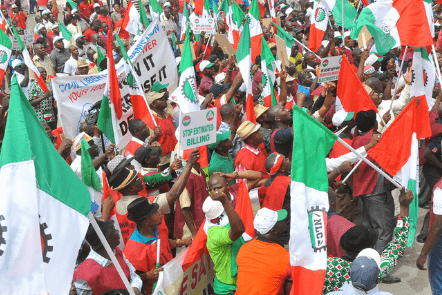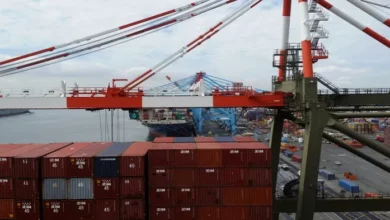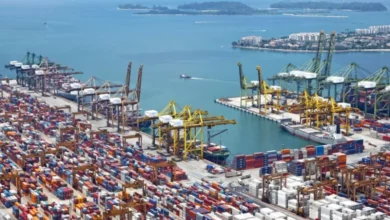
10 Factors Affecting Trade Union In Nigeria
Factors Affecting Trade Union In Nigeria – Trade unions in Nigeria are organizations formed to protect and promote the rights and interests of workers in the country. They are typically made up of employees from a particular industry or sector, and work to negotiate better wages, working conditions, and benefits for their members. Trade unions in Nigeria have a long history, dating back to the colonial era, and have played an important role in the country’s labor movement. Despite facing challenges such as government repression and economic instability, trade unions in Nigeria continue to be a powerful force for workers’ rights and social justice.Information Guide Nigeria
What is Trade Union?
A trade union is an organization that represents the collective interests of workers in a particular industry or profession. The main purpose of trade unions is to negotiate with employers for better wages, benefits, and working conditions for their members. They also advocate for fair labor laws and policies and may provide legal and financial assistance to members in disputes with their employers. Trade unions are typically democratic organizations, with leadership and policies determined by elected representatives from the membership.
👉 Relocate to Canada Today!
Live, Study and Work in Canada. No Payment is Required! Hurry Now click here to Apply >> Immigrate to CanadaRead Also: 10 Factors Affecting Utilization of Health Services In Nigeria
Types of Trade Unions in Nigeria
There are several types of trade unions in Nigeria, including:Factors Affecting Trade Union In Nigeria
- Industrial Unions: These unions represent workers in a specific industry, such as the Nigeria Labour Congress (NLC) which represents workers in the public sector.
- Craft Unions: These unions represent workers in a specific craft or trade, such as the National Union of Textile, Garment, and Tailoring Workers of Nigeria (NUTGTWN).
- General Unions: These unions represent workers across different industries and crafts, such as the Trade Union Congress of Nigeria (TUCN).
- Public Service Unions: These unions represent workers in the public sector, such as the Nigeria Union of Local Government Employees (NULGE) and the Nigeria Union of Teachers (NUT). 15 Best Industries in Nigeria
- Professional Unions: These unions represent workers in specific professions, such as the Nigerian Medical Association (NMA) and the Nigerian Bar Association (NBA).
- Sectorial Unions: These unions represent workers in a specific sector, like Banks, Oil, and Gas, Telecommunications, etc.20 Best Gas Cookers Pictures and their Prices in Nigeria
Read Also: 10 Factors Affecting Industrialization in Nigeria
Advantages of Trade Union in Nigeria
Trade unions in Nigeria can provide several advantages for workers, including:
- Collective Bargaining: Trade unions can negotiate with employers on behalf of workers to secure better wages, benefits, and working conditions.NYSC Portal
- Job Security: Trade unions can advocate for workers’ rights and protect them from unjust dismissal or discrimination.
- Legal Representation: Trade unions can provide legal representation for workers in disputes with employers.
- Improved Working Conditions: Trade unions can work to improve safety and health conditions in the workplace.
- Education and Training: Trade unions can provide education and training opportunities for workers to improve their skills and advance their careers.
- Social Protection: Trade unions can advocate for policies that provide social protection for workers, such as unemployment insurance and retirement benefits. JAMB Portal
- Access to Information and Resources: Trade unions can provide workers with access to information and resources that can help them to understand and navigate the workplace.
Read Also: 10 Factors Affecting Weather in Nigeria
The Impact of Trade Union and the Nigerian Society
Trade unions in Nigeria have a long history dating back to the colonial era. The first trade union in Nigeria was formed in 1918 by a group of railway workers, and in the 1920s and 1930s, other unions were formed by government workers, dockworkers, and teachers. However, these unions were mostly limited to public sector workers and had little impact on the broader economy.JAMB Result
During the colonial period, trade unions were heavily restricted and repressed by the British government. After Nigeria gained independence in 1960, the government continued to limit the activities of trade unions, particularly during military dictatorships in the 1970s and 1980s.
Despite these challenges, trade unions played an important role in advocating for workers’ rights and better working conditions. They also played a significant role in the struggle against military dictatorship and the restoration of democracy in the late 1980s and 1990s.
👉 Relocate to Canada Today!
Live, Study and Work in Canada. No Payment is Required! Hurry Now click here to Apply >> Immigrate to CanadaIn recent years, the Nigerian labor movement has continued to be active in advocating for workers’ rights and pushing for improved economic and political governance. However, the movement still faces challenges, including a lack of government support, weak organizational capacity, and a lack of unity among the different unions.
Read Also: 10 Factors Affecting Women’s Participation in Politics in Nigeria
Factors affecting Trade Union in Nigeria
Several factors affect trade unions in Nigeria. Some of these include:
- Economic Factors: The Nigerian economy is heavily dependent on oil exports, and fluctuations in the global oil market can have a significant impact on the economy and trade unions.
- Government Policies: The government’s policies and regulations can also affect trade unions. For example, if the government is hostile towards unions, it may make it difficult for them to function.
- Socio-cultural Factors: Socio-cultural factors such as religion, ethnicity, and traditional values affect trade unions in Nigeria. 200 romantic love message for her
- Globalization and Technological Advancement: The increasing trend of globalization and technological advancement has been affecting the traditional trade union movement in Nigeria.
- Lack of Public Support: The general public may not fully understand or support the role of trade unions in Nigeria, which makes it hard for unions to gain traction.
- Lack of Education and Training: Many union leaders and members may not have the necessary education and training to effectively represent workers and negotiate with employers.
- Internal Divisions: Internal divisions and conflicts within trade unions affect their ability to function effectively.
- Legal and Regulatory Environment: The legal and regulatory environment in Nigeria also affect trade unions. Laws and regulations that limit the ability of unions to organize and strike can make it difficult for them to advocate for workers’ rights.
- Competition from other Forms of Worker Representation: Other forms of worker representation, such as employee associations and worker cooperatives, may also compete with trade unions for members and influence.
- Lack of Resources: Trade unions in Nigeria often have limited resources, which makes it difficult for them to effectively represent workers and advocate for their rights. 105 good morning messages
Read Also: 10 Factors Affecting Human Capital Development In Nigeria
Conclusion
Trade unions in Nigeria play an important role in representing the rights and interests of workers in the country. They have a long history of advocating for better working conditions, wages, and benefits for their members. However, they have also faced challenges, including government interference and a lack of resources. Despite these challenges, trade unions in Nigeria continue to be an important voice for workers and play a vital role in the country’s labor movement.
Check JAMB RESULT
Check and Confirm: How much is Dollar to Naira








